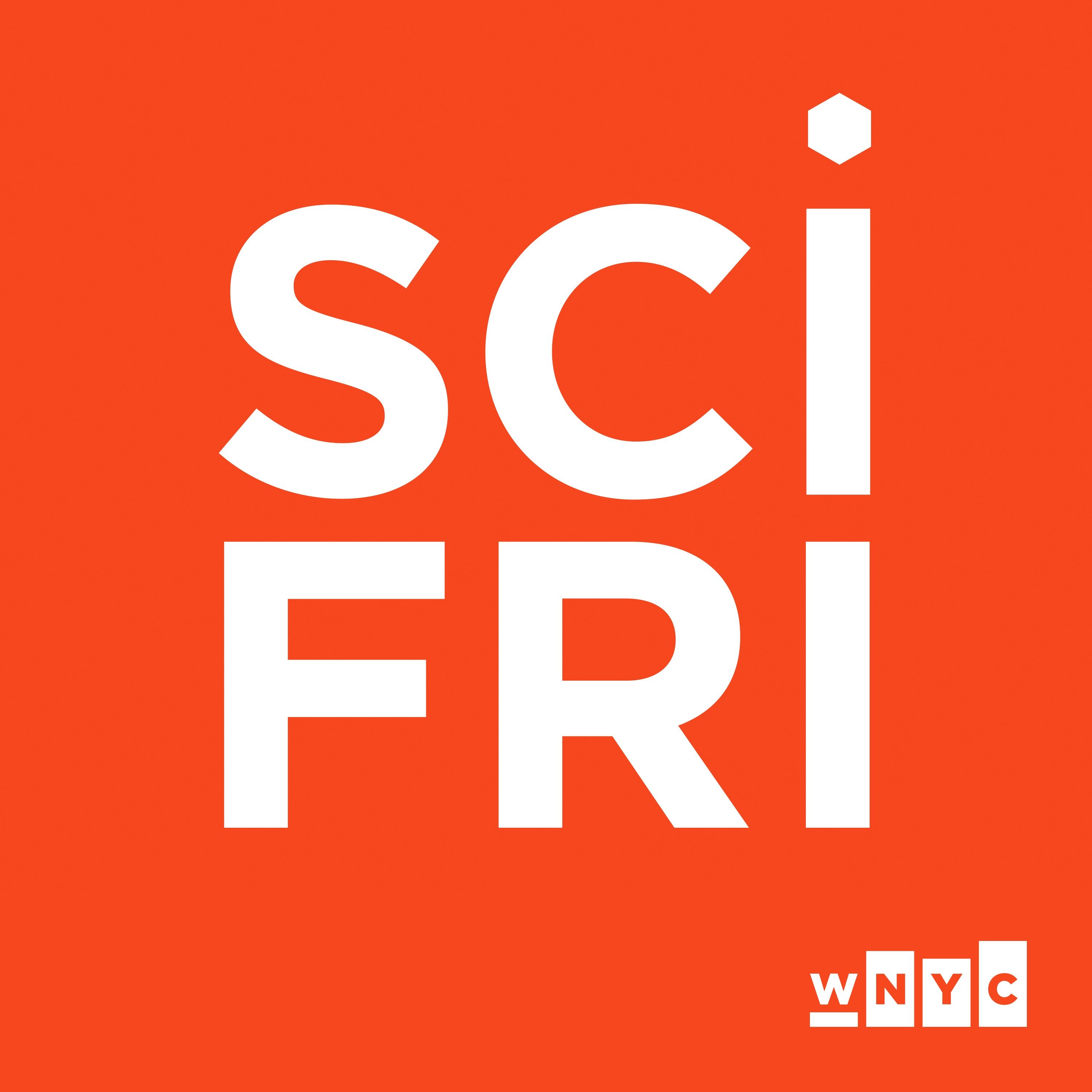

Science Friday
Science Friday and WNYC Studios
Covering the outer reaches of space to the tiniest microbes in our bodies, Science Friday is the source for entertaining and educational stories about science, technology, and other cool stuff.
Episodes
Mentioned books

Oct 29, 2025 • 18min
Why Morbid Curiosity Is So Common—And So Fun
Coltan Scrivner, a behavioral scientist and author, explores our fascination with horror and why some are drawn to morbid curiosity. Ken Carter, a psychology professor and author, examines thrill-seeking behavior and our physiological responses to fear. They discuss the rise of horror during the pandemic, its cathartic effects in uncertain times, and how horror fans often show high empathy. The duo also delves into the emotional regulation benefits of facing fears in a safe setting and why zombies continue to captivate our imaginations.

Oct 28, 2025 • 12min
Peanut Allergies In Kids Are Finally On The Decline
Dr. Sharon Chinthrajah, a renowned physician specializing in allergy and immunology at Stanford's Sean N. Parker Center, discusses the exciting decline in peanut allergies among young children. She shares insights on how new guidelines recommending early exposure to peanuts have contributed to this trend. The conversation explores immune training, the science behind why peanuts trigger allergies, and links to other food allergens. With a focus on progress and future treatments, Dr. Chinthrajah brings hope to parents navigating dietary challenges.

24 snips
Oct 27, 2025 • 23min
How Do Bacteria Talk To Each Other?
In this engaging discussion, Dr. Bonnie Bassler, a renowned microbiologist from Princeton and recent National Medal of Science recipient, dives into the intriguing world of bacterial communication. She reveals how bacteria use chemical signals to 'talk' and form complex societal behaviors that remain largely unexplored. Bonnie explains the concept of quorum sensing as a means of reaching consensus among bacteria and shares fascinating insights on how these microbes can detect their environment and even outsmart hosts. Her passion for these tiny organisms shines through as she discusses their potential applications in fighting diseases by disrupting their communication.

34 snips
Oct 24, 2025 • 30min
A Lab-Grown Salmon Taste Test And More Foodie Innovations
Kathleen Davis, a Science Friday producer and lab-grown meat correspondent, discusses the public's first taste of cultivated salmon from Wild Type. Dr. Rachael Floreani, a mechanical engineering professor, explains the innovative scaffolds used to replicate meat texture. Alexis Yamashita, a PhD student, shares her work with mung beans to improve local food systems. They explore public perceptions of lab-grown fish, the challenges of scaling production, and the exciting potential for diverse protein sources in sustainable diets.

9 snips
Oct 23, 2025 • 19min
What Did It Feel Like To Be An Early Human?
Ella Al-Shamahi, a paleoanthropologist and host of the BBC/PBS series 'Human', dives into the emotional landscape of our ancient ancestors. She advocates for storytelling that evokes feelings rather than mere facts. Explore what it meant to be a hybrid human-Neanderthal, the dynamics of interbreeding, and the surprising characteristics of Neanderthals. Al-Shamahi also discusses the key factors behind Homo sapiens' survival, including cumulative culture and neuroplasticity, reshaping our understanding of early human life.

21 snips
Oct 22, 2025 • 18min
TikTok Is Shaping How We Think About ADHD
Vasileia Karasavva, a PhD student from UBC, and Dr. Jennifer Katzenstein, director at Johns Hopkins, explore the impact of TikTok on ADHD understanding. They reveal that about half of popular ADHD videos are misleading, yet many viewers trust them more as they scroll. This can lead to accurate self-recognition or misguided self-diagnosis. The guests discuss how social media affects clinical assessments and the importance of discerning valid mental health advice amidst a sea of personal anecdotes.

Oct 21, 2025 • 13min
Footage Shows How Narwhals Use Tusks To Hunt And Play
Dr. Gregory O’Corry-Crowe, a research professor at Florida Atlantic University specializing in Arctic cetaceans, dives into the fascinating world of narwhals. He reveals how drones have unveiled their social behaviors during summer, including resting and complex interactions. Discover how their impressive tusks are used for both hunting and playful antics. The discussion also touches on the impact of climate change on narwhal life and highlights their ability to adapt amid shifting ecosystems. It's a captivating peek into the lives of the ocean's unicorns!

7 snips
Oct 20, 2025 • 13min
Have Astrophysicists Spotted Evidence For ‘Dark Stars’?
Dr. Katherine Freese, a theoretical astrophysicist from the University of Texas at Austin, explores the controversial concept of 'dark stars,' which may have existed in the early universe. These massive stars, powered by self-annihilating dark matter, could outshine current stars. Dr. Cosmin Ilie discusses how the James Webb Space Telescope has captured potential evidence through observations of 'red dots' and critical helium absorption features. The conversation dives into how these dark stars could seed supermassive black holes and challenge existing theories of star formation.

4 snips
Oct 17, 2025 • 18min
AI Was Supposed To Discover New Drugs. Where Are They?
Dr. Peter Coveney, a computational chemistry expert from University College London, discusses the challenges AI faces in drug discovery. Despite its promised speed and cost-efficiency, most AI-designed drugs have yet to reach approval. He reflects on the high-profile failures like Benevolent AI, and emphasizes that while generative AI may create novel molecules, many crucial development stages remain. Advocating for in silico trials and digital twins, he calls for realistic expectations about AI’s role in medicine and the need for addressing data biases.

13 snips
Oct 16, 2025 • 18min
How Math Helps Us Map The World
Join Paulina Rowińska, a mathematician and science journalist, as she navigates the fascinating world of cartography. Discover why all maps distort reality, from the Mercator projection's sailor-friendly angles to subway maps that sacrifice distance for clarity. Paulina shares how the rise of phone maps has changed our navigation skills and explores the complexities of mapping the ocean floor. She also reveals the challenges of measuring coastlines and dives into the traveling salesman problem's role in modern logistics.


